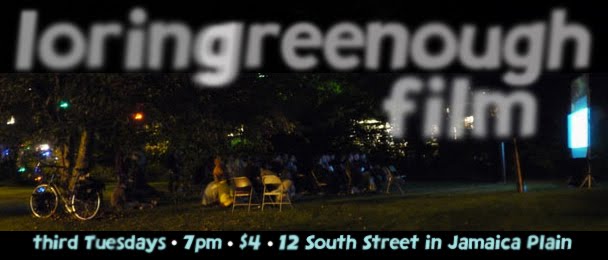Jonathan Schwartz is a filmmaker and sound designer who currently teaches film studies at Keene State College in Keene, NH. His travelogue film Nothing Is Over Nothing has screened at numerous festivals, including Views from the Avant-Garde (NY), TIE, ICE (Iowa City), EXiS (Seoul)...
PROGRAM:
Jonathan Schwartz
Nothing Is Over Nothing, 16mm, 17mins
Kathryn Ramey
The Passenger, 16mm, 17mins
Yanqui WALKER and the OPTICAL REVOLUTION, 16mm, 33mins
(Nothing Is Over Nothing)
(Yanqui WALKER)
(The Passenger)
"Yanqui WALKER and the OPTICAL REVOLUTION is an experimental documentary about a, now obscure, American expansionist and military dictator, William Walker who, through military force and coercion, became president of Nicaragua in 1856. The film blends found footage, documentary photography, ethnographic inquiry and personal travelogue with experimental film techniques such as hand-processing, optical printing and hand conducted time-lapse to detour and derail the various approaches to history making that have been applied to this story. Yanqui WALKER as a contemporary work of film art, not only tells us something about history and how it connects to current political, social and economic situations but also how art and poetry can be a means to subvert and transcend even the most oppressive of narratives.
"In an effort to simultaneously recover history and question the ability to objectively report it, the film blends educational films, images from my travel to those countries central to the narrative, Costa Rica, Nicaragua and Honduras as well as marching music from the time and first person plural narration regarding the events depicted in the film. Text on screen takes on multiple roles, sometimes translating location sound, sometimes contradicting or augmenting the voiceover or image and sometimes giving a Spanish translation of English spoken words. A “reading film” on William Walker created in an education program at Harvard university in the 1930’s helps to provide one historical perspective on the story while two different films, one from the 1950’s and one from the 1970’s on the economy and culture of Central America also contextualize the region and American conceptions of it. Educational films are also used to engage Walker’s history with the economic, social and political themes of “manifest destiny” or territorial expansionism in the United States as well as the tensions leading up to the American Civil War. All of these “voices” blend to create a rich multi-vocality that not only calls attention to the constructedness of history but to the perspectives, personal, academic, cultural, that we use to try to approach and represent it." (K. Ramey)








No comments:
Post a Comment